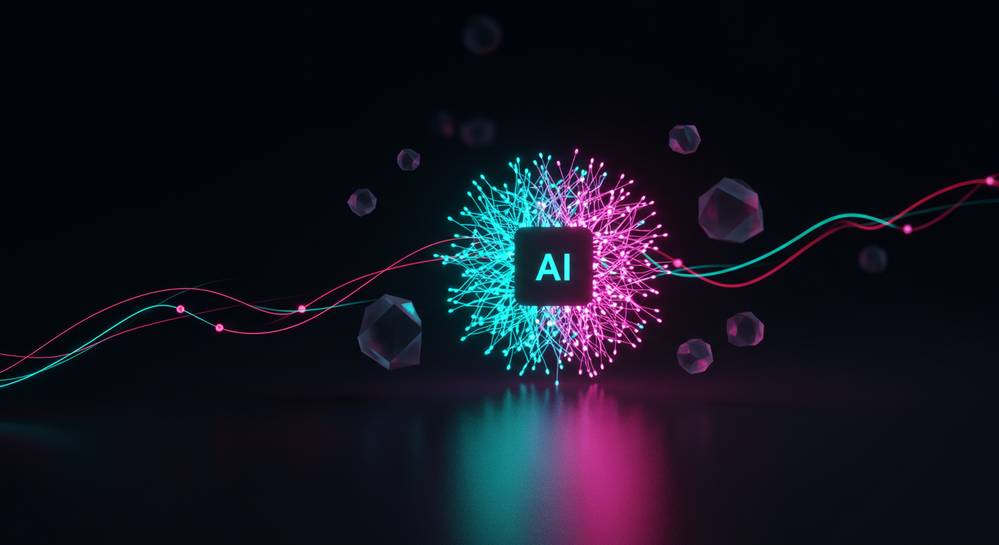The field of artificial intelligence is evolving at an unprecedented pace, making it challenging to keep up with the constant flow of updates. Each week brings news of more powerful models, novel applications, and significant breakthroughs that reshape industries. This article cuts through the noise to focus on the most important ai technology advancements news, explaining what these changes mean for you and what to expect next in this dynamic field.
The rise of multimodal ai systems
One of the most significant AI technology advancements news stories of 2025 is the rise of multimodal systems. These platforms move beyond single-data processing, like text or images alone. Their sophisticated AI agent architecture allows them to understand and integrate video, audio, and text simultaneously. This creates a far more natural and human-like interaction, fundamentally changing how we use technology in daily tasks.
Key capabilities driving the latest AI developments
- Real-time translation: A user can speak in one language while pointing their camera at a menu, and the AI instantly translates the text and speaks it back.
- Advanced data analysis: These systems can analyze complex financial charts, listen to a spoken report summary, and answer questions requiring both visual and auditory context.
- Enhanced accessibility: Multimodal AI can describe a person’s surroundings in detail, helping visually impaired individuals navigate new environments with greater confidence and safety.
This fusion of senses is not just an incremental update; it represents a paradigm shift. Companies like OpenAI with GPT-4o and Google with Gemini are at the forefront, pushing the boundaries of what is possible in machine perception and interaction. Their progress signals a future where technology understands our world as we do.
Breakthroughs in ai for science and medicine

Beyond consumer applications, some of the most profound ai technology advancements news involves science and medicine. AI models now analyze vast datasets faster and more accurately than human teams. This capability, discussed at events like the Vietnam Blockchain and AI Week 2025, accelerates research by identifying complex patterns that lead to major breakthroughs. It is fundamentally changing how we approach scientific discovery.
This ability to process complex information is not just about speed. It is about uncovering novel insights that can solve long-standing scientific challenges. AI is becoming an indispensable partner in the laboratory.
Transformative applications in research
- Drug discovery: AI algorithms simulate molecular interactions, dramatically shortening the time to find promising new drug candidates. This is crucial for tackling challenges like antibiotic resistance.
- Genomic analysis: By analyzing genetic sequences, AI helps researchers pinpoint genes linked to specific diseases, paving the way for truly personalized medicine and targeted therapies.
- Medical imaging: Advanced models detect diseases like cancer in scans with accuracy that often surpasses human radiologists. DeepMind’s AlphaFold program, which solved the protein folding problem, highlights this potential.
How ai is transforming creative industries

The creative landscape is undergoing a radical transformation, a key theme in recent ai technology advancements news. Generative AI tools have evolved from novelties into sophisticated partners for artists, musicians, and filmmakers. They use AI to push boundaries, automate tedious tasks, and explore new aesthetic possibilities. This integration is changing workflows and raising questions about authorship in the digital age.
AI in visual arts and design
Text-to-image models allow creators to generate stunning visuals from simple text descriptions. Graphic designers use these platforms to quickly prototype ideas and develop entire visual identities. This technology democratizes creation, with new developments undefined. It empowers those without traditional artistic skills to bring ideas to life.
Generative audio and video
In music, AI platforms can compose entire songs, complete with vocals and instrumentation, from a simple prompt. Similarly, video generation models are creating short, photorealistic clips from text. These advancements streamline production for independent creators and large studios alike.
The next frontier ethical ai and regulation

As AI technology becomes more powerful, the focus is shifting to responsible development. The conversation around ai technology advancements news is no longer just about technical capabilities. It is now centered on ethics, safety, and governance. Tech companies and governments are grappling with how to build fair, transparent AI aligned with human values.
The push for explainable AI (XAI)
One key challenge is the black box nature of complex AI models. Even their creators may not fully understand their reasoning. Explainable AI is an emerging field focused on making these decision-making processes transparent. This is crucial in high-stakes sectors like finance and healthcare, where accountability is paramount.
Global efforts in AI regulation
Governments worldwide are establishing legal frameworks to manage AI risks. The European Union’s AI Act is a landmark piece of legislation. It categorizes AI applications by risk level and imposes strict requirements on high-risk systems. These regulatory efforts aim to foster innovation while protecting fundamental rights and ensuring public trust.
The continuous stream of AI advancements signals a fundamental shift in how we work, create, and solve problems. From multimodal systems that offer more intuitive interactions to breakthroughs that accelerate scientific discovery, AI’s impact is both broad and deep. Staying informed about these developments is essential for navigating the opportunities and challenges ahead. For the latest insights and analysis, keep exploring with Instant News Online.
